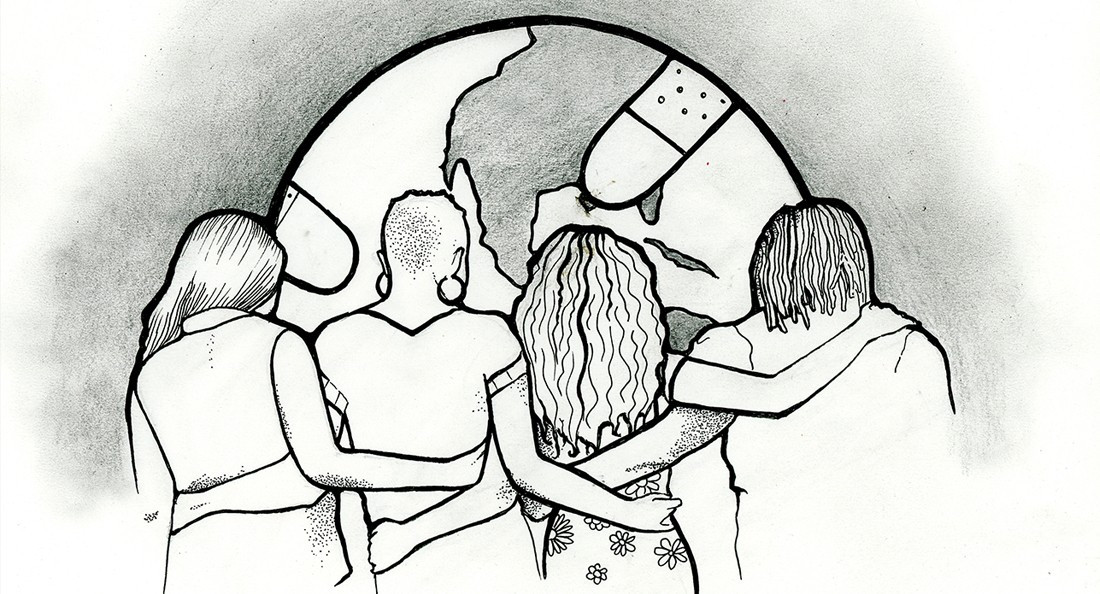Halfway to somewhere
It’s difficult to ask others for help
It’s difficult to ask others for help. It’s difficult to admit you don’t even know how to begin fixing a big problem.
I’m daring to hope we’re reaching some sort of a tipping point in the way we publicly talk about the environmental crisis that *hopefully* is going to begin to translate into legislation and major social change. With Greta Thunberg and a host of other young climate and decolonial activists getting major media attention, as well as with the 12-year countdown warning issued by the IPCC, it is becoming increasingly untenable to look away from the facts.
As people, governments and corporations begin to respond to the crisis, it will matter what form that response takes, how we collectively imagine actions to stop climate change, and how we are going to support each other through a difficult future.
In her book, Staying with the Troubles, Donna Haraway cautions against two responses to the present climate crisis, which she believes are harmful. The first is faith in “technofixes,” the belief that “technology will somehow come to the rescue of its naughty but very clever children.” The second is the bitterly cynical notion that we have already reached a point of “game over,” the sense that things have already gone too far, and so we might as well party until the world ends.
These responses share something in common. They both hinge on a fear of admitting that we don’t know how to deal with the problem of climate change, which leads them to pass responsibility off to another entity: either to the elusive tech-gods who will come to rescue us, or to a vision of the inescapable apocalypse.
What these responses fail to account for is the fact that change doesn’t come in an instant. Environmental devastation, at the urgent point it is at, is far too immense an issue to be met by individualistic efforts and “quick-fix” mentalities.
Whatever happens now, the world is about to experience an inevitable period of rapid transformation, and we are going to need one another. Acknowledging that we don’t know how to fix this, allowing ourselves to be vulnerable and admitting that we are scared are all powerful steps towards building a sense of solidarity during this time of global climate crisis.
Throughout Haraway’s book, she repeatedly returns to the phrase “It matters which ideas we think other ideas with.” What Haraway means to emphasize is that our knowledge and ways of being in the world always exist in the context of our communities and history. It matters what ideas we use to think through the current ecological crisis, as these ideas will inform and shape our collective responses to change.
Individualistic reactions to the climate crisis tend to emphasize things like survivalism, burying ourselves in apocalypse bunkers or placing faith in “techno-fixes.” Yet I’d argue that skills like compassion, empathy and community-building are just as, if not more important for bearing through difficult times.
It’s difficult to admit that we don’t have all the answers for how to respond to the climate crisis. It’s difficult to admit that we need each other.
In the coming decades, whether it is organizing protests or strikes, educating and doing advocacy work, surviving the climate apocalypse or just helping each other through activist burnout, we are going to need each other.
Instead of waiting for great individuals or “techno-fixes” to save us, I will place my hope in our collective ability to support one another, no matter how messy, frustrating or hurtful this may seem.
Jase Falk is a non-binary femme, student and writer who lives on Treaty 1 territory.
Published in Volume 74, Number 5 of The Uniter (October 3, 2019)








